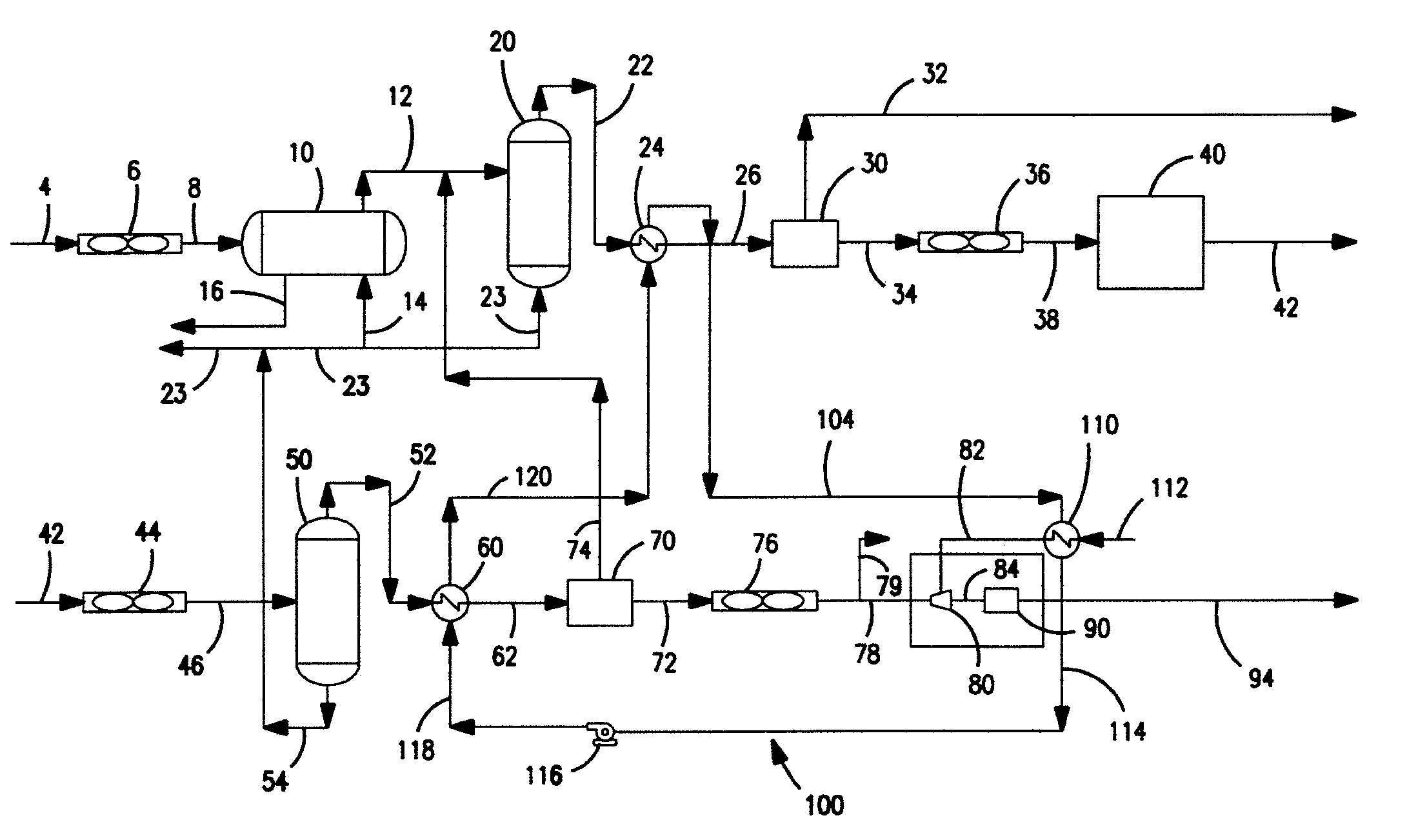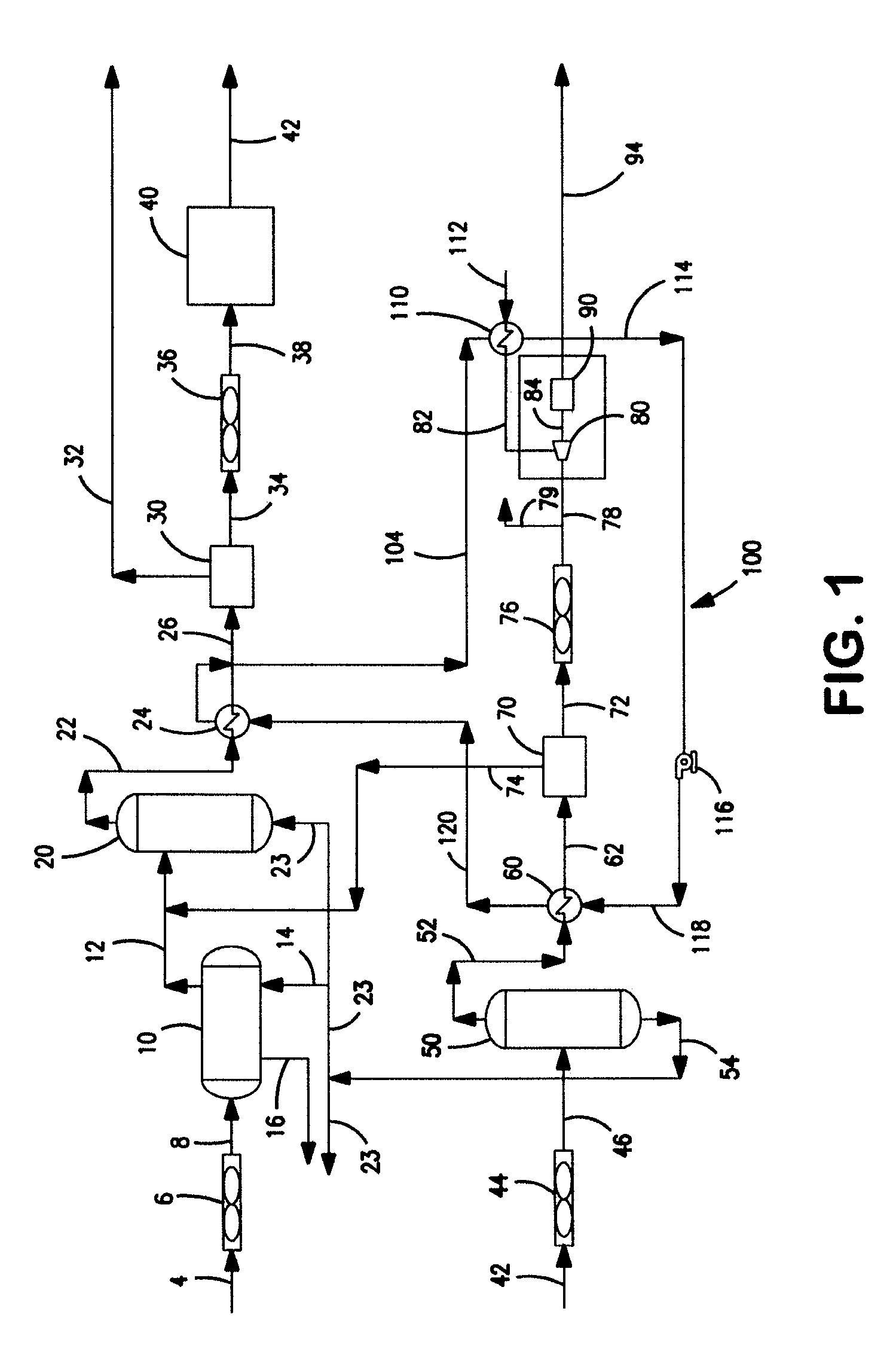High efficiency gas sweetening system and method
a gas sweetening system and high-efficiency technology, applied in the direction of gaseous fuels, separation processes, membranes, etc., can solve the problems of large amine plant, large quantity of so-called “greenhouse gases", and large quantity of so-called greenhouse gases
- Summary
- Abstract
- Description
- Claims
- Application Information
AI Technical Summary
Benefits of technology
Problems solved by technology
Method used
Image
Examples
Embodiment Construction
[0033]The raw natural gas contemplated for use herein generally comprises at least 50 mole percent methane, preferably at least 75 mole percent methane, and more preferably at least 90 mole percent methane for best results. The balance of natural gas generally comprises other combustible hydrocarbons such as, but not limited to, lesser amounts of ethane, propane, butane, pentane, and heavier hydrocarbons and non-combustible components such as carbon dioxide, hydrogen sulfide, helium and nitrogen.
[0034]The presence of heavier hydrocarbons such as ethane, propane, butane, pentane, and hydrocarbon boiling at a boiling point above propane is generally reduced in the natural gas through gas-liquid separation steps. Hydrocarbon boiling at a temperature above the boiling point of pentane or hexane is generally directed to crude oil. Hydrocarbon boiling substantially at a temperature above the boiling point of ethane and below the boiling point of pentane or hexane is generally removed and ...
PUM
 Login to View More
Login to View More Abstract
Description
Claims
Application Information
 Login to View More
Login to View More - R&D
- Intellectual Property
- Life Sciences
- Materials
- Tech Scout
- Unparalleled Data Quality
- Higher Quality Content
- 60% Fewer Hallucinations
Browse by: Latest US Patents, China's latest patents, Technical Efficacy Thesaurus, Application Domain, Technology Topic, Popular Technical Reports.
© 2025 PatSnap. All rights reserved.Legal|Privacy policy|Modern Slavery Act Transparency Statement|Sitemap|About US| Contact US: help@patsnap.com


